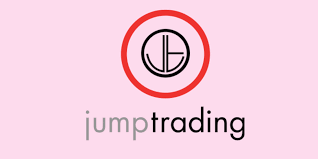Bitcoin also needs DeFi application, startups launch Bitcoin version of MakerDAO
The Bitcoin community may soon have its own DeFi platform.
Based on the Bitcoin sidechain Rootstock (RSK), startup Money On Chain has launched a DeFi platform. The company is currently planning to transform into a non-profit trust, similar to MakerDAO's Maker Foundation, which is responsible for managing a lending system that locks cryptocurrency collateral.

This is not the first exploration of Bitcoin in the field of DeFi. Projects such as the Cross-Chain Working Group are exploring ways to package Bitcoin into Ethereum tokens to achieve DeFi applications; there are also companies that provide centralized services that use Bitcoin as collateral for DAI lending.
- PwC Kris Kersey: Autonomous network formed by the integration of AI, Internet of Things, and blockchain is a promising future
- Lightning Network ushers in "the most significant technological progress" in 2019, and multi-path payment is about to go online, solving the problem of large payments
- Galaxy Digital and XBTO participate, Bakkt Bitcoin options contract completes first block trade
Money on Chain co-founder Max Cajurzaa said:
"We will allow other projects to build a DeFi ecosystem on top of Bitcoin. We will launch money on chain based lending products, but the ecosystem will evolve. This is exactly the same as MakerDAO in Ethereum."
This platform is decentralized, protected by Bitcoin miners, and there is no collateral in the bank account. All collateral is held through smart contracts running on the RSK network.
Cajurzaa says:
"This is an important step towards a more open and transparent financial system. The Money on Chain agreement allows other projects to develop loans, credits and other transactions for Bitcoin holders."
RSK co-founder Diego Gutierrez Zaldivar said his team is already communicating with MakerDAO to explore the bridge between the Ethereum-based platform and this new sidechain project.
"Creating a local currency token backed by Bitcoin is the first application we thought of when developing RSK. This is a bridge that connects the traditional economy with the Bitcoin and crypto economy, and builds a decentralized financial ecosystem for Bitcoin System, the key to inclusive finance. We are very excited about RSK's participation in the significant development of Bitcoin. "
To be clear, the RSK project is not "Bitcoin-based", it is closer to Bitcoin. The RSK sidechain is branched from the Bitcoin blockchain and issues Bitcoin IOUs. It utilizes Bitcoin's mining power, but uses a separate alliance to manage the sidechain.
Zaldivar said that there are 15 projects in the RSK Alliance, down from 25 founding members in 2016, but he declined to disclose specific membership information. If these alliance members shut down their servers and use their built-in nodes, the RSK protocol will not be able to exchange Bitcoin IOUs for real Bitcoin. However, assuming this does not happen, the RSK DeFi model provides a bridge for locking bitcoin and reallocating risk.
Cajurzaa says:
"Most importantly, we can use Bitcoin as collateral."
Like MakerDAO, the Money on Chain ecosystem also involves many tokens.
The first is Dollar on Chain (DoC), which is a DAI-inspired, Bitcoin-backed, USD-linked token; the second is BitPRO (BPRO), which is a Bitcoin fee charged to system users , Used for "passive income"; the third is Money on Chain tokens (MoC), which are voting tokens, similar to the MKR of the Maker Foundation.
Cajurzaa added that the issuance of stablecoins linked to fiat currencies is to make it easier for merchants to accept cryptocurrencies without having to worry about the volatility of Bitcoin.
Like the DeFi project Uniswap, Money on Chain will prevent users in jurisdictions with compliance issues, including the United States, India, China and Egypt. After all, the issuance of tokens is considered to provide "passive income" and could violate North American securities regulations.
To some extent, Zaldivar said that these geographic restrictions are good because the system is designed for Latinos.
"We want this system to meet the needs of people who cannot be met by the traditional financial system in Latin America."
We will continue to update Blocking; if you have any questions or suggestions, please contact us!
Was this article helpful?
93 out of 132 found this helpful
Related articles
- Babbitt Original | Starting domestic alliance chain, this is the best era for blockchain to help Chinese manufacturing
- + Government | Government is doing these things with blockchain
- Observation | The story of the application layer is difficult to continue. How does the public chain live through 2020?
- Yao Qian: Quantum Money: An Academic Imagination
- Ethereum 2019: year after year, continuous expansion
- China Mutual Fund Association: Tips on Preventing Risks of ICO and "Virtual Currency" Trading Activities in the Name of Blockchain
- Long Baitao Comments: Comparing the Development and Supervision of Large Chinese and German Technology Companies





